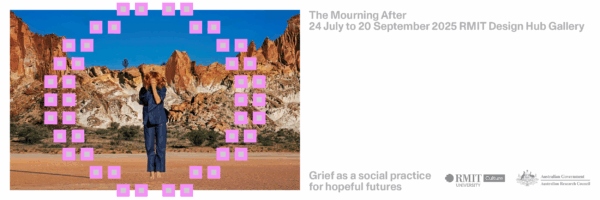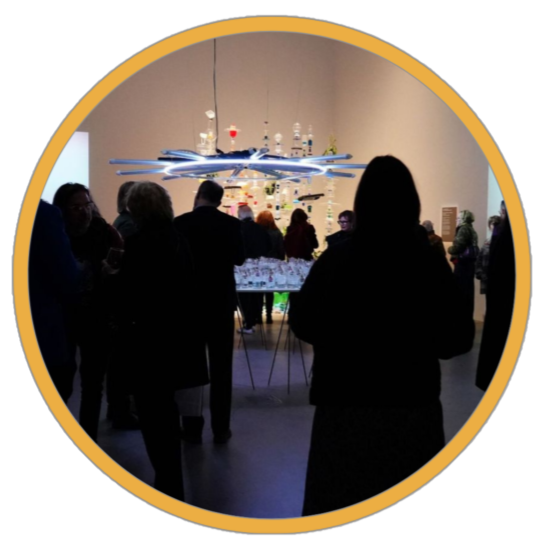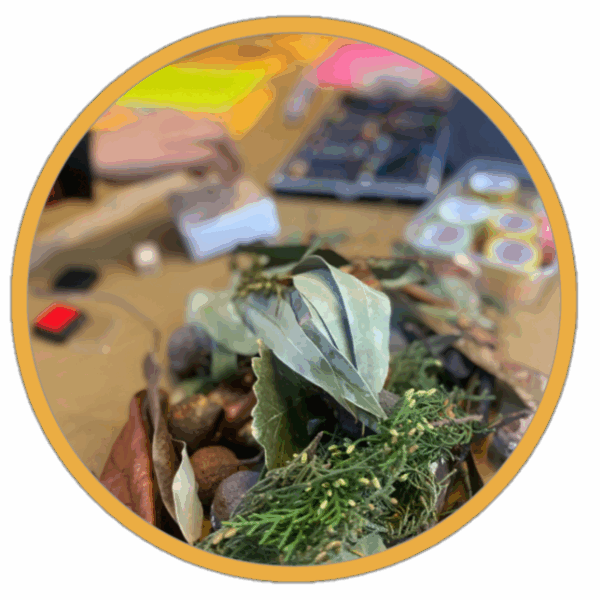The Mourning After invited visitors to reflect on grief in its many forms—as something personal, shared, and collective. Through artworks, installations and workshops, the exhibition created space for conversation, connection and new rituals of mourning. From climate loss to digital remembrance, it opened gentle, creative pathways to understand how grief shapes us and how it can connect us to more hopeful futures.
The Mourning After Exhibition and Public Program took place from 24.7.-20.9.2025 at RMIT Design Hub in Melbourne. Over these 9 weeks, the gallery became alive with conversation, creativity and care:
- Over 1500 visitors throughout the exhibition
- 26 free public workshops held
- 690+ registrations across events
Video by RMIT Culture





